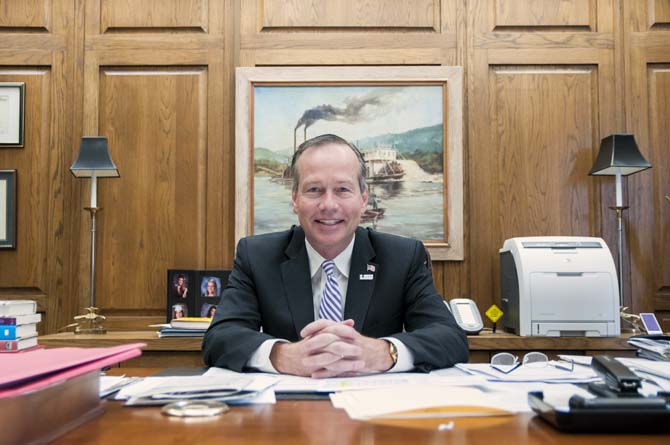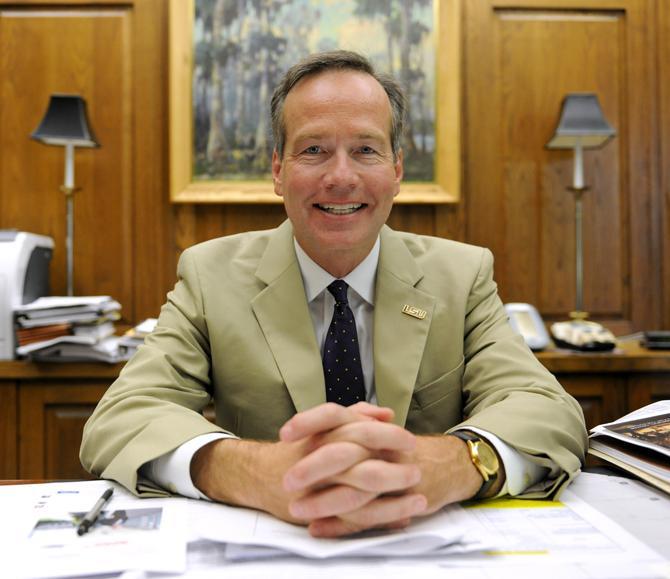LSU President F. King Alexander said one of the most difficult tasks of his first year at the University was uniting the different factions of Louisiana higher education and working together to accomplish goals.
Alexander spearheaded LSU Day in February, leading a group of system chancellors to lobby for higher education in Washington D.C., a first for the LSU System, whose chancellors typically traveled to D.C. to lobby separately, said Jason Droddy, director of external affairs. Alexander said he plans to make LSU Day an annual tradition, and the system is stronger when the members work together toward goals.
Alexander said for years the universities in the state were not unified when it came to working for improvements and lobbying, and it gave legislators a way out of prioritizing higher education. Alexander said trust and collaboration needed to be brought to Louisiana higher education.
The three days of canceled classes in January due to the inclement weather were trying for Alexander as well, he said. He feared students would attempt to drive back to their hometowns through the ice storms if they didn’t have class.
Other Louisiana universities were waiting to decide whether to cancel class based on the University’s decisions. The final decision regarding classes was made when the state police closed the bridges because faculty could not make it to campus, Alexander said.
Alexander took on the dual role of University Chancellor and LSU System President a year ago, after approval from the Board of Supervisors. The Advocate and NOLA.com | The Times-Picayune sued the University at the time of Alexander’s hiring because it failed to release the names of other candidates for Alexander’s position. The media outlets maintained the candidate lists were public records.
Baton Rouge District Judge Janice Clark ruled in favor of the media outlets in April 2013, stating the documents regarding others considered for the position fell into the category of public record. The University has since appealed the decision and appeared in the court for oral argument on April 1. A decision on the matter will be heard in the coming weeks.
Kevin Cope, Faculty Senate president, said Alexander had to spend his first year getting to know the LSU System and the Board of Supervisors he inherited, comprising 15 appointees of Gov. Bobby Jindal. Cope said Alexander had success working with legislators to improve retirement and funding despite having to move forward gradually and with caution.
In the months since Alexander moved into office, the LSU System underwent changes in its organization as a part of LSU2015, a process to make the University and system more efficient and globally competitive.
Among the organizational changes to the system were the consolidation of the LSU AgCenter and the College of Agriculture, the recently approved realignment of the Paul M. Hebert Law Center and the flagship campus and the hiring of Vice President for Finance and Administration Daniel Layzell, who advises finances at the University and system level.
In addition to system changes, Alexander’s first year saw salary increases of about 4 percent for most University departments. The funding for raises came from various sources including tuition from increased enrollment, position vacancies and from closing certain scholarships, said Robert Kuhn, former interim CFO.
Cope said Alexander’s first year has seen successes, but he may benefit from showing more of his personality, which would give the University more of a sense of direction. Cope said while lobbying is good for the LSU System, it may make it seem like the campuses have been outsourced.
LSU President works to unite system
May 4, 2014
LSU President and Chancellor of LSU A&M F. King Alexander
More to Discover










